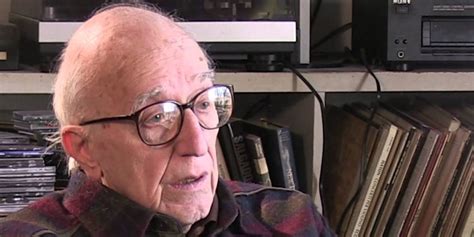A Quote by Marcus Vitruvius Pollio
If our designs for private houses are to be correct, we must at the outset take note of the countries and climates in which they are built.
Related Quotes
In treating of the oak, I have considered that the species of it growing in warm climates is superior to that which is produced in cold countries. But we must not imagine this to be the case with all woods; on the contrary, the fir timber grown in cold countries is superior to that produced in warm ones, where its growth is rapid.
Our goals should stretch us bit by bit. So often when we think we have encountered a ceiling, it is really a psychological or experimental barrier that we have built ourselves. We built it and we can remove it. Just as correct principles, when applied, carry their own witness that they are true, so do correct personal improvement programs. But we must not expect personal improvement without pain or some 'remodeling.' We can't expect to have the thrills of revealed religion without the theology. We cannot expect to have the soul stretching without Christian service.
Now there are heavy houses everywhere and more of them are being built. In fact, it is only when more houses are being constructed that some countries consider their economics healthy. Yet each house is a heavy footprint on the Earth. Just as all our possessions represent-if we cannot learn ways of sharing them-a weight and clutter that often means the faces of future generations will look up into darkness and the pressure on the Earth of "things."
Our merriment must be of that kind (and it is, in fact, the merriest kind) which exists between people who have, from the outset, taken each other seriously - no flippancy, no superiority, no presumption. And our charity must be a real and costly love, with deep feeling for the sins in spite of which we love the sinner - no mere tolerance or indulgence which parodies love as flippancy parodies merriment.
For such will be our ruin if you, in the immensity of your public abstractions, forget the private figure, or if we in the intensity of our private emotions forget the public world. Both houses will be ruined, the public and the private, the material and the spiritual, for they are inseparably connected.
Any housing solution that involves paying for industrially produced building materials and commercial building contractors is doomed to certain failure. If houses are to be built at all, in sufficient quantity, they must be built without money. We must go right outside the framework of the money system, bypass the factories, and ignore the contractors.
The establishment can't admit [that] it is human rights violations that make ... countries attractive to business - so history has to be fudged, including denial of our support of regimes of terror and the practices that provide favorable climates of investment, and our destabilization of democracies that [don't] meet [the] standard of service to the transnational corporation.
In the world of globalization, the fossil fuel masters of the universe who are digging up our boreal forest and our muskeg and scraping out the bitumen would rather have Canadians take all the risks - and then the oceans take the risks to ship it to refineries that they've already built in other countries rather than create jobs for Canadians here.
Ask yourself whether our language is complete--whether it was so before the symbolism of chemistry and the notation of the infinitesimal calculus were incorporated in it; for these are, so to speak, suburbs of our language. (And how many houses or streets does it take before a town begins to be a town?) Our language can be seen as an ancient city: a maze of little streets and squares, of old and new houses, and of houses with additions from various periods; and this surrounded by a multitude of new boroughs with straight regular streets and uniform houses.


































